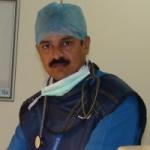Myths and Facts about cancer pain
Dr (Maj) Pankaj N Surange
Interventional pain and spine specialist
The key messages are:
· Your pain can be managed.
· Controlling pain is part of your cancer treatment.
· Talking openly with your pain physician will help them manage your pain.
· The best way to control pain is to stop it from starting or keep it from getting worse.
· There are many different medicines and interventions to control pain. Everyone's pain control plan is different.
· Keeping a record of your pain will help create the best pain control plan for you.
· People who take cancer pain medicines as prescribed rarely become addicted to them.
· Your body does not become immune to pain medicine. Stronger medicines should not be saved for "later."
When pain is not treated properly, you may be:
Tired
Depressed
Angry
Worried
Lonely
Stressed
When cancer pain is managed properly, you can:
Enjoy being active
Sleep well
Enjoy family and friends
Improve your appetite
Enjoy sexual intimacy
Prevent depression
Myths and facts about pain medications
- Not all the pain killers are same. Each drug has its own side effects profile.
- Adjuvants like antidepressants and anticonvulsants in lower doses have effect on modulation of pain mechanism and are not prescribed by pain specialist to treat depression or seizure.
- Opioids (narcotics) and steroids are not harmful if taken in appropriate doses under medical supervision
- For cancer-related pain that remains uncontrolled despite oral or transdermal options, the use of nerve blocks, spinal administration of anesthetics, and minimally invasive non surgical interventions may be beneficial.
- A risk: benefit ratio is always considered prior to implementing invasive analgesic methods.
· Usually the side effects last only a few days. But if they last longer, your doctors can change the medicine or dose you're taking. Or they may also add another medicine to your pain control plan to control the side effects.
· Don't let side effects stop you from getting your pain under control.
· Medicine tolerance is not the same as addiction.
As mentioned, medicine tolerance happens when your body gets used to the medicine you're taking. The result is that the dose no longer works as well. Each person's body is different. Many people don't develop a tolerance to opioids. But if tolerance happens to you, don't worry.Under your doctor's care, you can:
· Increase your dose in small amounts
· Add a new kind of medicine
· Change the kind of medicine that you're taking for pain
· The goal is to relieve your pain. Increasing the dose to overcome tolerance does not lead to addiction.
Take home message
- Cancer pain is very common and is often underestimated and undertreated. A successful management of pain is essential in the care of patients living with cancer or facing the end of life.
- Principles of pain management include a proper and regular assessment of pain, encouragement of patients and their families to use opioids for cancer pain, and aggressive management of side effects.
- Pharmacotherapy continues to be the cornerstone of cancer pain management. A three-step analgesic ladder described by the WHO provides a general guideline for pain management. - -Opioids are the drugs of choice for moderate to severe cancer pain of all causes.
- Usefulness and proper implementation of the interventional anesthetic techniques is essential in the cancer patients with uncontrollable or refractory pain.
- Nonpharmacological and complimentary therapies may also be considered when needed.
- Ultimate goal for the cancer pain management is to ensure a good quality of life and restoring physical and psychological health as far as possible.
- International conference on interventional pain management,aiims, new delhi
- Osteoporosis and intervention for vertebral fracture
- Fda approves monthly injectable drug for treating three types of immune-related arthritis
- Back pain -minimaly invasive non surgical management
- Myths and facts about cancer pain
- Minimally invasive spine specialist
- Interventional pain and spine specialist

 Comments (
Comments ( Category (
Category ( Views (
Views (
a very informative post....